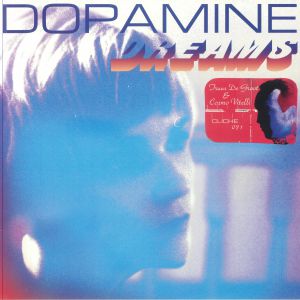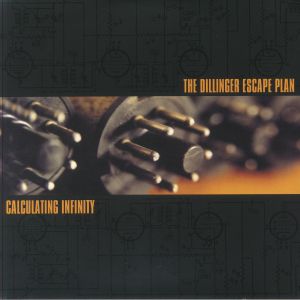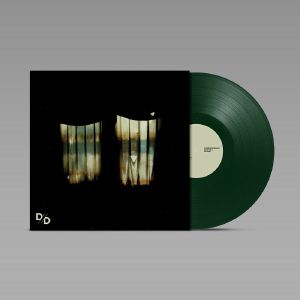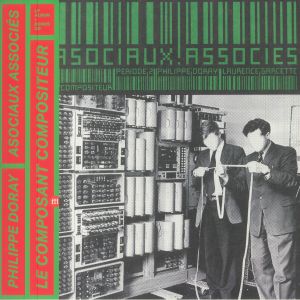Back catalogue: All genres
Juno's full catalogue of All genres
Alben
Review: Carrying the torch for bittersweet post-punk introspection like few others of her generation, Carla dal Forno has always captivated through the strength of her songwriting. That she also successfully channels the sound of the DIY 1980s is a bonus. On her third album, dal Forno has settled in rural Australia and the album reflects a drastic shift in her circumstances since being in the cut and thrust of Berlin and London. There's space for more open, light-touch songs to match the brooding, low-register tracks she made her name on. But in essence, dal Forno remains true to her muse, meaning returning fans will be more than satisfied with the latest step on for one of the finest singer-songwriters in contemporary post-punk.
… Read moreGespielt von: Alexis Le-Tan, Stunty
in stock $22.54
Review: This is the latest album from Berlin-based French producer Cosmo Vitelli and California-based Dutch experimental electronic musician Truus de Groot, who is well known for her work with Plus Instruments. Following their successful collaboration on Vitelli's 2022 album Medhead which featured de Groot's lyrics and vocals on several tracks, the two artists decided to join forces once more and the result is a blend of Vitelli's production skills and de Groot's distinctive voice and lyrical style. It is another fresh, experimental approach to modern electronic music.
… Read more in stock $35.51
Review: Dead Sound is collaborative project featuring Marco Sterk (aka Young Marco) and Berlin-based pop-auteur John Moods, two artists with existing links to the Music From Memory label, Sterk being part of the trio Gaussian Curve and Moods released the 2022 album Hidden Gem with The Zenmenn. The eight tracks here are delicate and atmosphere-laden, drawing on everything from reverb-soaked, harmonic folk - 'Eye In Disguise' - to the Geiger counter rhythm and low-in-the-mix mutters of 'Force of Nature', like an understated Throbbing Gristle if such a thing could be imagined. If you enjoyed Trentemoller's recent reinvention of shoegaze, Scandi synthpop and post-punk on Dreamweaver, then this will be well up your street.
… Read moreGespielt von: Alexis Le-Tan
in stock $31.01
Lonely People With Power (gatefold 'amethyst' vinyl 2xLP (indie exclusive))
Cat: 756786 01378. Rel: 11 Apr 25
Metal
Review: With 2021's Infinite Granite taking a sharp left turn into the realms of hazy, luscious dream-pop, eyes have been pointedly fixed on San Francisco blackgaze heroes Deafheaven ever since, with many of their fanbase pondering where to next? The answer is their highly anticipated sixth full-length, Lonely People With Power, which finally showcases the band freed from all creative restraint and audience expectation, marrying their equal and effortless understanding of black metal malevolence and shoegaze ethereality, even allowing frontman George Clarke to make full use of his recently discovered vocal range. Howling shrieks and delicate crooning weave around one another on the euphoric heft of 'Heathen', whereas 'Magnolia' offers up one of their most succinctly black metal cuts to date, radiating with the caustic aura of Emperor's more proggy latter-day output. Forgoing their usual post-rock penchant for a small number of tracks all clocking in at approximately ten minutes, the numerous cuts (12 in all, marking the most of any Deafheaven album to date) prioritise instantaneous delivery on their most sprawling and musically diverse collection yet, fusing their harshest and most accessible sonics into one monumental victory lap touching upon everything from black metal to shoegaze, dream-pop, thrash, post-rock, emo, screamo and post-punk.
… Read moreGespielt von: Juno Records Staff Picks
in stock $49.04
Lonely People With Power ('windshield' translucent green vinyl 2xLP)
Cat: 007567 8600968. Rel: 27 Mar 25
Metal
Review: Following on from 2021's hard left turn into dream-pop territory on Infinite Granite, San Francisco blackgaze legends in the making Deafheaven return with a work that they've always been striving towards. Their sixth full-length, Lonely People With Power, takes lessons from the saccharine shoegaze of their previous outing and injects it directly into the veins of their heaviest material since 2015's New Bermuda, culminating in a deft balancing act that finally combines vocalist George Clarke's shrieking, inhumane howls with his recently discovered crooning lilt, exuded as such on the beautiful warring of styles that is 'Heathen'. Elsewhere, 'Magnolia' provides a cataclysmic beast of proggy black metal akin to latter-day Emperor whereas 'Doberman' goes full euphoric blackened shoegaze reminiscent of 2013's breakout sophomore triumph Sunbather. Striking a unique chord between their equal and effortless understanding of black metal malevolence and the ethereality of cinematic post-rock, the album sees a notable trade off from their their usual smaller collection of lengthy, grandiose tracks that all clock in at over ten minutes a piece in favour of a more varied, yet succinct and instantaneous batch of cuts, 12 in total, marking the most that any Deafheaven project has ever offered.
… Read more in stock $41.15
Review: San Francisco blackgaze auteurs Deafheaven offered a sharp left turn on 2021's Infinite Granite, which saw the band embrace a fully-fledged dream-pop sound complete with lush, gentle vocal cadences from enigmatic frontman George Clarke, known primarily for his shrieking, inhumane howls. Returning with their sixth full-length Lonely People With Power, the band seek to finally strike a balance between their equal understanding of black metal malevolence and ethereal shoegaze beauty, trading their usual penchant for small collections of lengthy, post-rock indebted ten minute plus tracks in favour of more instantaneous delivery, spread out across 12 individual pieces (their most on any project to date). Ranging from their heaviest and most straightforward black metal work on 'Magnolia', to the blackgazing familiarity of 'Doberman' to the seamless fusion of styles exuded on 'Heathen', which makes ample use of Clarke's now fully elaborated vocal range, marrying his caustic screams with fragile crooning, this is where Deafheaven have seemingly always been striving to land, it just took them a few albums of experimentation to get there.
… Read more in stock $56.36
Tall Vision Of The Voyage (black & grey splattered vinyl LP with obi-strip)
Cat: PMVXLP 04. Rel: 28 Sep 23
Experimental/Electronic
Review: Talk about taking risks. Delmer Darion's jaw-dropping second album is like no other you'll hear this autumn. Trust us. Taking inspiration from legendary tales like Jules Verne's Voyages Extraordinaires, the record is split into two powerful halves. On the one side, industrial electronica and bewitching vocals meet in this abrasive but beautiful sonic place that owes as much to darkroom pop as it does experimental synth-dom. Blending elements of shoegaze, ambient and doom folk, it's a place thick with mystery and awe, wonder and, to a lesser extent, fear, and one you want to spend plenty of time in. Part two, meanwhile, does away with what small amount of convention was there before, and opts for an 18-minute spoken word masterpiece, rooted in Arthurian lore but at surface level focused on the 1919 sinking of HMY Iolair, off the coast of Stornoway.
… Read more in stock $21.41
Miss Machine (green blue yellow & grey splattered vinyl LP + insert in spot-varnished sleeve)
Cat: RR 51771. Rel: 27 Jun 24
Metal
Review: Originally released in 2004, Miss Machine would serve as the revitalised sophomore effort from mathcore visionaries The Dillinger Escape Plan. Following the departure of original vocalist Dimitri Minakakis after their groundbreaking 1999 debut LP Calculating Infinity, and their collaborative Irony Is A Dead Scene EP with Faith No More/Mr. Bungle/Fantomas vocal absurdist Mike Patton, the band would enlist the hulking, feral Greg Puciato, a frontman with a far more intense shriek than his predecessor while also coming from the school of Patton's eccentric dynamism with his expansive range. The resulting work would chart an entirely new course for the collective, with Puciato retaining his presence throughout their next five full-lengths, while the newfound balancing act between dissonant, mind-melting polyrhythmic hardcore and avant-garde industrial jazz-prog, would become their future sonic playground. Yes, much of the Dillinger Escape Plan identity was carved out before Puciato's arrival, but Miss Machine is often cited as the album where all of the jagged, oddly shaped pieces finally fit into place.
… Read more in stock $24.53
Calculating Infinity (reissue) (limited orange, silver & black vinyl LP + insert)
Cat: RR 51761. Rel: 27 Jun 24
Metal
Review: In the mid-90s while the hardcore punk scene witnessed both an influx of more melodious acts as well as those injecting the scene with as much metallic bite as possible, few could have been prepared for the utter assault on the senses The Dillinger scape Plan were cooking up. Often cited as the one of the pioneering acts in the mathcore subgenre (combining the unhinged intensity of hardcore with the compositional dexterity of math rock), 1999's Calculating Infinity is still regarded to this day as one of the most uncompromising, impenetrable, and challenging debuts in alternative, punk or metal. Their only full-length with original vocalist Dimitri Minakakis before his departure and subsequent replacement by the admittedly much more dynamic Greg Puciato, and pre-dating their experimental collaborative EP with Faith No More/Mr. Bungle mastermind Mike Patton; the material here does little to offer any sonic respites of glitched out synth ambience or even a melodious hook. Rather, it lays down a highly complex blueprint of odd time signatures, polyrhythms, dissonant breakdowns, jazz freakouts and caustic vocal howls that would inspire an entirely new wave of outsiders who felt hardcore and metal just weren't vicious or experimental enough on their own merits.
… Read more in stock $25.65
Review: Based out of Melbourne, Australia, Takiaya Reed (better known as Divide & Dissolve) is a one-woman monolithic force of industrial-tinged, neo-classical leaning instrumental doom metal. Originally a duo, 2023's fourth full-length Systemic marked the first effort from the project following the departure of percussionist Sylvie Nehill (of M?ori and White-Australian heritage), with guitarist/saxophonist Reed (of Tsalagi and African-American heritage) embarking on a solo venture from there on out. Her second singular display of overtly political, droning sonic dread comes in the form of Insatiable, which coalesces mercurial beauty with bombastic abrasion, almost as if sonically illustrating the warring of mindsets active in our collective conscious. From drawing ire back in 2018 for their controversial music video for 'Resistance' which featured spitting and spraying urine-coloured water on monuments of colonial figures such as Captain James Cook and John Batman, Reed has made it clear ever since that their punishing instrumentals are designed with the artful intention of "decolonising, decentralising, disestablishing, and destroying white supremacy", which she makes overwhelming ends to accomplish without a single word uttered.
… Read more in stock $28.18
Le Composant Compositeur (limited LP + CD + insert with obi-strip)
Cat: FFL 089LP. Rel: 16 Jan 24
Experimental/Electronic
Review: To say Philippe Doray and his Asociaux Associes finished the 1970s with creative fervour would be an understatement. First we had 1976's Ramasse-Miettes Nucleaires, then two years after that there was the equally potent Nouveaux Modes Industriels. Both were heralded as ahead of their time, at the time, bringing together strange, otherworldly pop, spacey prog, prototypes of Krautrock and impassioned poetry. Le Composant Compositeur followed, and in their own words marked the beginning of a new era in the 'Antisocial Associates' project (to use the English translation). It's a marvellous addition to the collection, too, a series of sharp, edgy, mutant pop tracks, weirdo brass experimentation, compressed electro, dubby ideas, and twisted, acid-spiked fairground themes.
… Read more in stock $30.72
Vini Reilly (35th Anniversary Edition) (Record Store Day RSD 2024) (limited numbered LP)
Cat: LMS 1725126. Rel: 08 May 24
Indie/Alternative
Review: The Durutti Column prove just how fertile the North West England music scene was during the mid-late-1970s and through the 1980s. Taking their name from an anarchist military movement active during the Spanish Civil War, the band was formed by Vini Reilly, who brought together a bunch of players from the nascent punk and post punk scene, and managed to turn heads in the process. One of which was Tony Wilson. One of the first acts to sign to his now-legendary Factory Records, they would remain on the imprint until its demise, by which time the project had become a solo thing for Reilly, whose name was already shorthand for risk taking with bold ideas. Take this record, for example, veering from Southern Mediterranean folk to experimental indie, sample-based rock-opera and more, it still defies expectations.
… Read moreGespielt von: Juno Recommends Rock/Indie
! low stock $32.41

 USD
USD


















